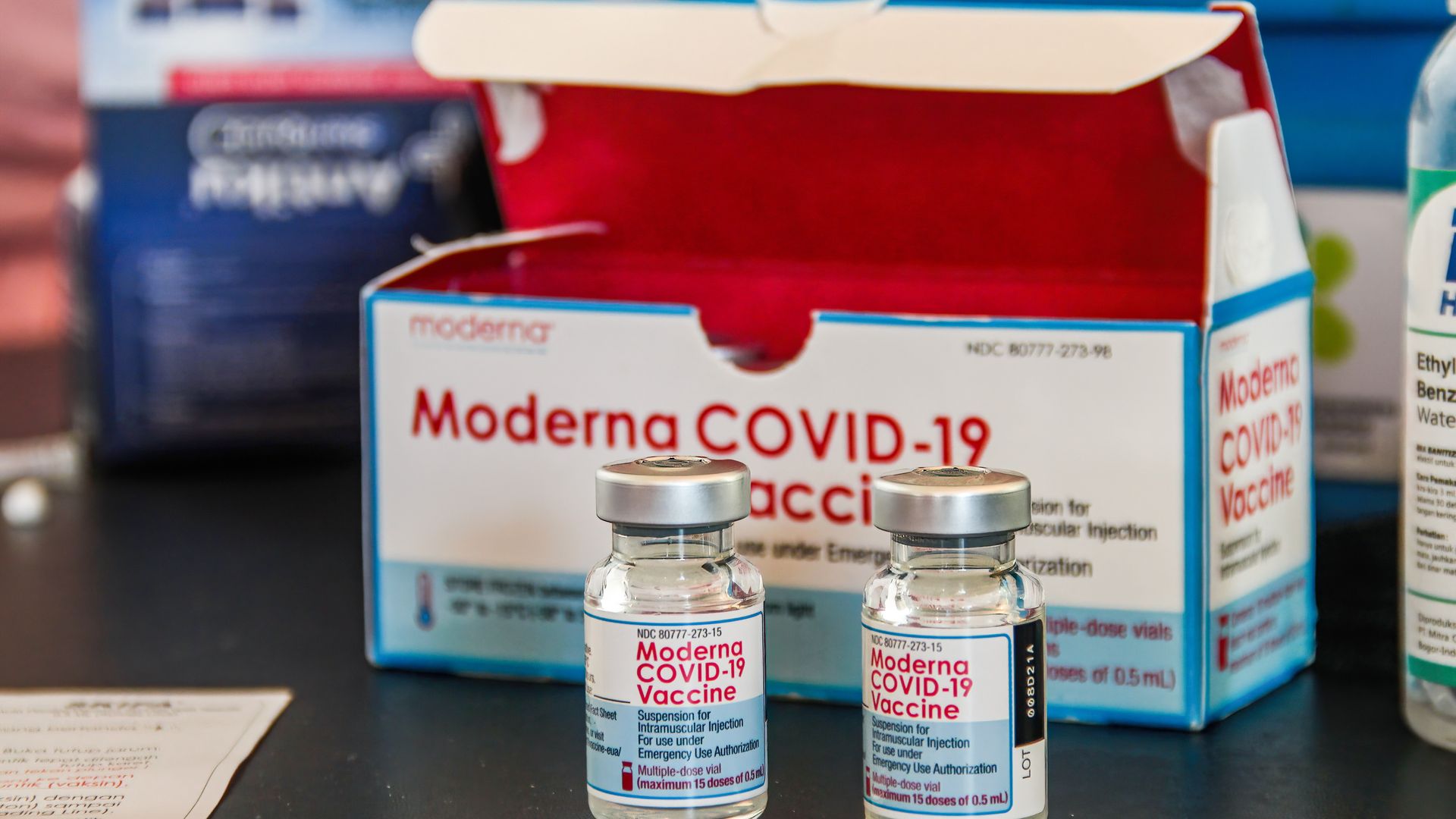Sep 15, 2021 - Science
Moderna suggests booster shots, citing clinical data
Add Axios as your preferred source to
see more of our stories on Google.

A box of the Moderna COVID-19 vaccine in Indonesia. Photo: Algi Febri Sugita/SOPA Images/LightRocket via Getty Images
